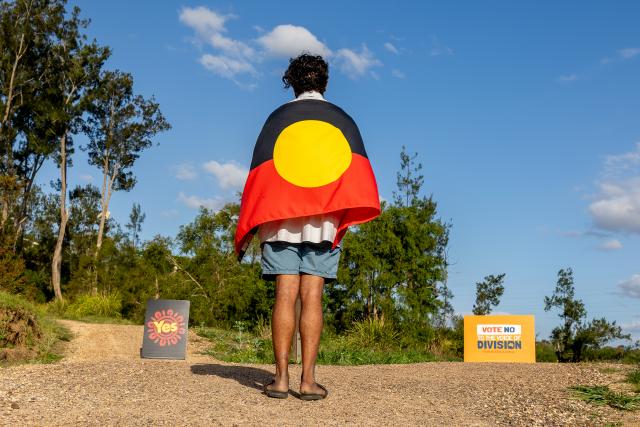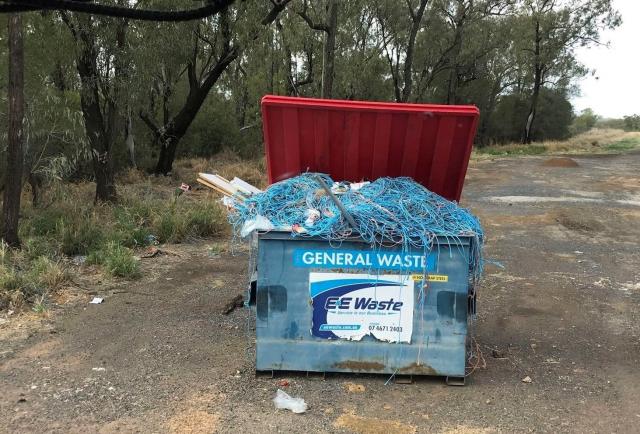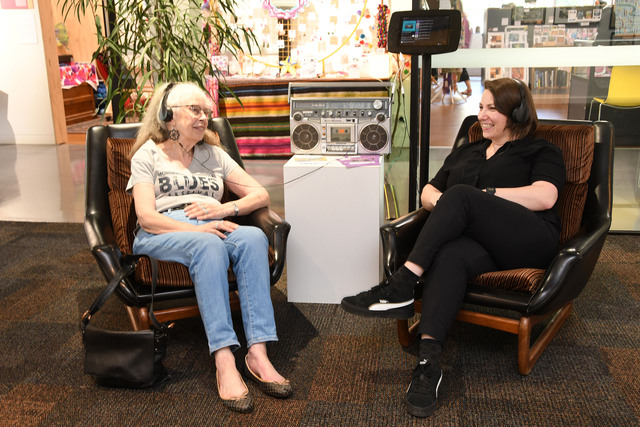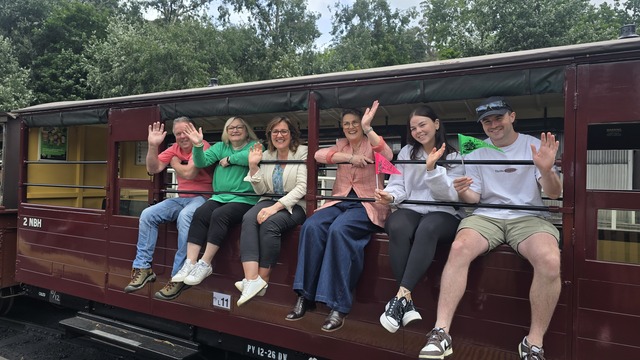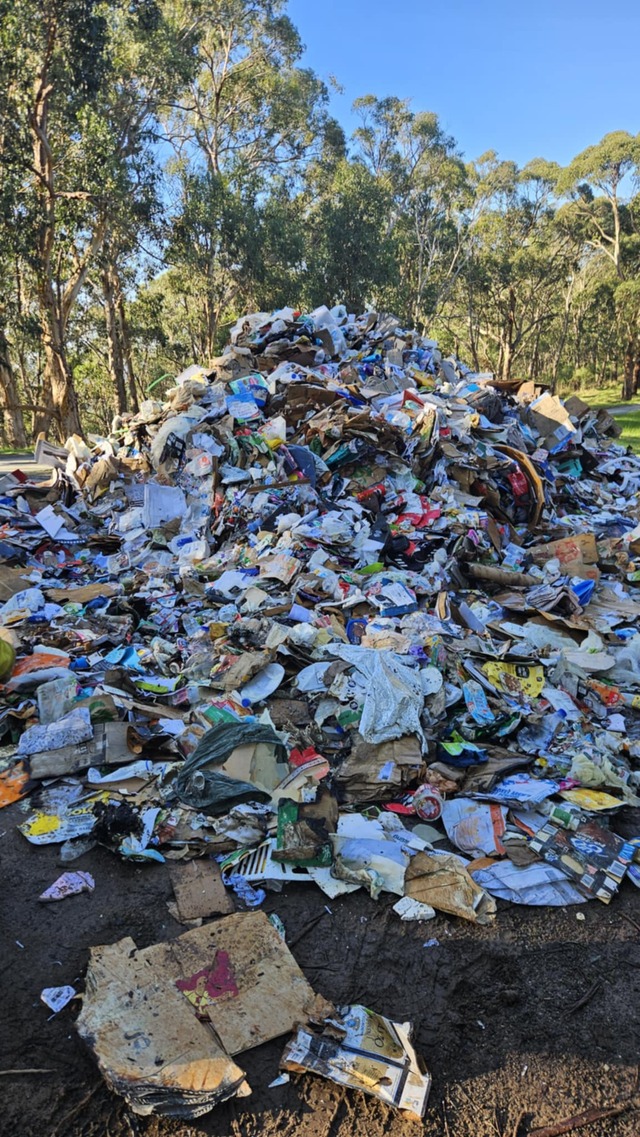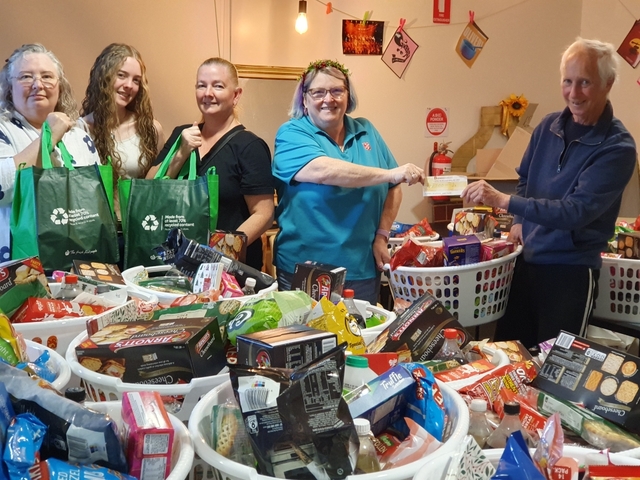Australians have rejected a proposal to enshrine an Indigenous voice to parliament in the constitution.
A progressive vote count on Saturday showed the ‘no’ vote in the referendum was ahead 56 per cent to 44 per cent, with more than two million votes tallied.
A majority ‘no’ vote in NSW, Tasmania and South Australia – forecast by ABC election analyst Antony Green – was enough to kill off the government’s proposed constitutional change.
Some voters in Western Australia, which is three hours behind eastern states, were still to cast a vote when the outcome was first speculated.
A referendum requires a majority of votes in a majority of states to succeed.
The ACT was the only jurisdiction to support the reform, but its tally only goes towards the national vote and not the state-by-state total.
‘Yes’ campaigner Thomas Mayo said he was devastated by the results, which had signalled a “sorry day”.
Mr Mayo said he did not blame the Australian public for the referendum outcome.
“It’s not (Prime Minister Anthony Albanese’s) fault, it’s not the Australian people’s fault, it’s the people that have lied to us … they are the ones that should be blaming,” he said.
“We have seen a disgusting campaign from the ‘no’ people.”
‘No’ campaigner Warren Mundine said advocates against the proposal had engaged with the community.
“I knew that we could win every state, and that we could have a chance to get the majority vote,” he told ABC.
“The reality is that we went and spoke to the people out there.”
Prime Minister Anthony Albanese, who pledged the constitutional change in his 2022 post-election speech, said earlier in the day he had done everything possible to ensure a successful referendum.
He said the ‘no’ campaign had “spoken about division while stoking it”.
Mr Albanese said the road to reconciliation with Indigenous Australians had not ended despite the referendum outcome, and that a new way forward was needed with the same level of optimism.
“Just as the Uluru Statement from the Heart was an invitation extended with humility, grace and optimism for the future, tonight we must meet this result with the same grace and humility, and tomorrow we must seek a new way forward with the same optimism,” he said.
“This moment of disagreement does not define us, and it will not divide us. We are not ‘yes’ voters or ‘no’ voters. We are all Australians.”
Assistant Indigenous Australians Minister Malarndirri McCarthy said the vote was “so important” to Indigenous Australians.
“This was always going to be about three per cent of the population, who are asking for an advisory body,” she said.
“Referendums are tough to win. We have seen that with the statistics in terms of eight out of 44 (referendums succeeding).”
Coalition senator Kerrynne Liddle denied the result had shown Australians were against Indigenous people.
“They didn’t say ‘no’ to reconciliation. They did not say ‘no’ to improving the lives of Indigenous Australians,” she said.
Liberal MP Julian Leeser, who had spearheaded a Liberals for Yes campaign, said he was disappointed by the result.
“Though the ‘yes’ case is lost tonight, I know that the cause of reconciliation will ultimately succeed,” he said.
“To every Indigenous Australian I say, this was a vote about the constitution, it was not a vote about you. It is an undeniable fact that you are our land’s first peoples and I honour you this night.”
Independent senator and ‘no’ campaigner Lidia Thorpe said she was not surprised by the referendum outcome.
“I’m not surprised that we’ve got ‘no’ votes coming out strongly, because people either don’t know what it is about or, that in terms of the black sovereign movement, we don’t want to go into the constitution,” she said.
About 6.1 million Australians voted early and 2.1 million eligible voters applied for a postal ballot, with some 9.2 million Australians casting their vote on Saturday.
It was the first referendum held in Australia for 24 years.

